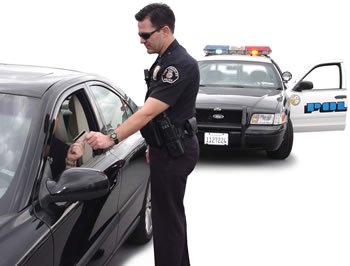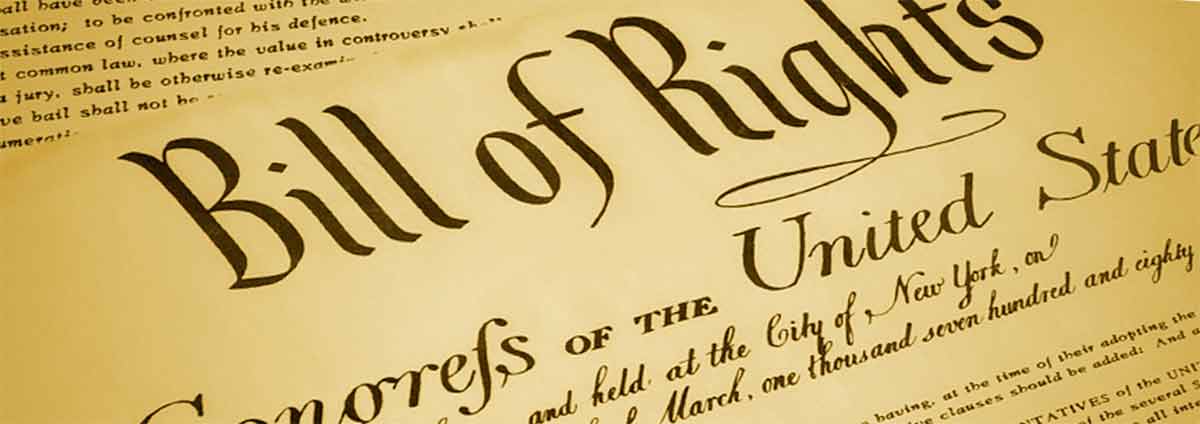Motion to Suppress Evidence Seized Incident to Arrest in Michigan
The police look for excuses to search a person’s car. The law permits them to search the vehicle if they can find any lawful reason to make an arrest. If your rights have been violated, you need a constitutional warrior to protect and defend you.

The Current Practice of Searching the Passenger Compartment – Follow it or face a Motion to Suppress!

On April 21, 2009, the United States Supreme Court issued an opinion that significantly altered the current practice of searching a motor vehicle’s passenger compartment upon an occupant’s arrest. Michigan Motion to Suppress Attorneys constantly monitor state and federal cases to ensure they can provide the best possible defense for felony and misdemeanor criminal cases.
In Arizona v. Gant, the defendant was arrested for driving while his license was suspended. After Gant was handcuffed and secured in a patrol car, officers searched the passenger compartment of his vehicle, finding a baggie containing cocaine and a gun.
The officers in Gant presumably relied on the long-standing rule that allowed officers to search a vehicle without a warrant incident to arrest of an occupant of the car.
The Court opinion in Gant changed that rule and held:
“Police may search a vehicle incident to a recent occupant’s arrest only if the arrestee is within reaching distance of the passenger compartment at the time of the search or it is reasonable to believe the vehicle contains evidence of the offense of arrest. When these justifications are absent, a search of an arrestee’s vehicle will be unreasonable unless police obtain a warrant or show that another exception to the warrant requirement applies.”
What is a Motion to Suppress? How can an attorney help?
A motion to suppress is a legal request made by a defendant in a criminal case, asking the court to exclude certain evidence from being presented at trial. This motion is typically filed when the defendant believes the evidence was obtained in violation of their legal rights, particularly those relating to the Fourth Amendment (unlawful search and seizure), Fifth Amendment (right against self-incrimination), or Sixth Amendment (right to counsel) of the U.S. Constitution. For instance, if law enforcement conducted a search without a warrant or coerced a confession, the evidence obtained from these actions could be challenged.
A lawyer plays a crucial role in filing and arguing a motion to suppress. They possess the legal knowledge and expertise necessary to evaluate the circumstances under which the evidence was obtained and identify any constitutional rights violations. An experienced lawyer knows how to effectively present arguments and legal precedents to persuade the court that the evidence in question was improperly obtained, should not be considered, and the case should be dismissed.
Furthermore, a lawyer can navigate the complex procedural rules associated with filing a motion to suppress, ensuring it is filed correctly and within the designated time frame. They can also represent the defendant in any hearings related to the motion, cross-examine witnesses, and challenge the prosecution’s evidence. The outcome of a motion to suppress can significantly impact the course of a criminal case, potentially leading to a dismissal or reduction of charges if crucial evidence is excluded. Thus, having a top criminal defense attorney’s expertise, such as the lawyers with LEWIS & DICKSTEIN, P.L.L.C., and advocacy is essential in these situations.

The Current Rule for Searches Incident to Arrest
What does this decision mean for the officer on the street? Officers may no longer automatically search a vehicle incident to the arrest of an occupant.
The Court emphasized that once a suspect has been arrested, handcuffed, and secured in the patrol car, a search of the car incident to a lawful arrest is not justified unless the officer articulates a reason to believe that evidence of the crime of arrest can be located in the car.
While this ruling will impact how searches of vehicles incident to arrest are conducted, officers may still conduct a full search of a person incident to a lawful arrest. In addition, officers may search vehicles using other exceptions to the warrant requirement (e.g., probable cause, inventory, consent). If the officer searches the driver, passenger, or vehicle without legal justification, a Michigan Motion to Suppress Attorney can fight to get evidence thrown out of court.
How do you get evidence thrown out of court?
When defending against criminal charges, one of the most potent strategies for a top criminal defense attorney is challenging the admissibility of evidence through a Motion to Suppress. This legal maneuver hinges on demonstrating that the evidence in question was obtained in violation of the defendant’s constitutional rights. The Defense Team with LEWIS & DICKSTEIN, P.L.L.C. scrutinizes violations of the Fourth Amendment, such as unlawful searches and seizures, and breaches of Fifth Amendment protections, like coerced confessions or failure to administer Miranda warnings. Additionally, issues with the chain of custody, improper warrant execution, or denial of Sixth Amendment rights to legal counsel can render evidence inadmissible.
It’s imperative to meticulously examine the circumstances surrounding the evidence collection, ensuring any infringement upon someone’s rights is brought to light. As experienced defense attorneys, we understand the intricacies of this process and are adept at identifying procedural missteps or rights violations. Our expertise in presenting compelling arguments for a Motion to Suppress can be pivotal in safeguarding our client’s rights and potentially altering the outcome of their case. Remember, excluding key evidence can significantly weaken the prosecution’s case, sometimes leading to reduced or even case dismissal. Therefore, understanding and effectively employing a Motion to Suppress is a critical component of a robust legal defense strategy in Michigan.

Michigan Motion to Suppress Attorneys
If you are accused of a felony or misdemeanor offense and are concerned about your rights, being treated fairly in court, and obtaining the best possible outcome, the good and affordable attorneys with LEWIS & DICKSTEIN, P.L.L.C. can help you. Our Michigan Motion to Suppress Attorneys have decades of experience winning for clients in courts throughout Michigan. We routinely file Motions to Suppress evidence in cases where our client’s rights have been violated.
Call us today at (248) 263-6800 for a free consultation or complete an online Request for Assistance Form. We will contact you promptly and find a way to help you.












